- Home
- Robert B. Parker
Widow’s Walk s-29
Widow’s Walk s-29 Read online
Widow’s Walk
( Spenser - 29 )
Robert B Parker
Robert B Parker
Widow’s Walk
Joan, Dave, and Dan: the rest is decoration.
CHAPTER ONE
“I think she’s probably guilty,” Rita Fiore said to me.
We were in her office, high up, with a view of the harbor.
“And you’re her lawyer,” I said.
“Tells you about her case,” Rita said. She sat on the edge of her desk in front of me, her thick red hair gleaming. She had on a black suit with a very short skirt. Rita knew her legs were good.
“But you’ll represent her anyway.”
“Like everyone else,” Rita said, “she’s entitled to the best defense she can get.”
“Or afford,” I said.
Rita smiled. “Or afford.”
“She got money?”
“Oodles,” Rita said.
“Last time I worked for you,” I said, “I almost got killed.”
“I know,” Rita said. “We could give you hazardous-duty pay.”
“It’s all hazardous duty,” I said. “Tell me about your client.”
“Mary Smith.”
“Mary Smith?”
“Honest to God,” Rita said. “It’s her real name. She was married to the victim, Nathan Smith. Her maiden name was Toricelli.”
“She have oodles of money before she married him?” I said.
“No.”
“Ah ha!”
“Ah ha?”
“It’s an investigational term,” I said. “That where the oodles come from?”
“Yes.”
“They the same age?”
“He married her when she was twenty-three and he was fifty-one.”
“Prior marriages?”
“None. For either.”
“How old is she now?”
“Thirty.”
Rita had her legs crossed. She bounced the top leg a little, looking at the point of her shoe. The shoe had a very high heel. It looked uncomfortable. But good.
“Anyone else in her life?”
Rita shook her head sadly. “God,” she said. “You’re a cynical bastard.”
“Anyone?”
“Cops suspect her of an affair or two.”
“With?”
Rita smiled. “You want them in chronological order?” she said. “Or alphabetically?”
“You can give me a list,” I said. “What’s the prosecution’s case?”
“He was discovered naked in his bed with a hole in his head made by a forty-caliber slug.”
“They find the bullet?”
“Yes. After it went through his head it tore through the mattress and lodged in the baseboard. Angle of the shot suggests that it was fired by someone in bed beside him.”
“She have an alibi?”
“No. She says she was downstairs in the library watching television.”
“She hear the shot?”
“No. Says the TV was on loud and her door was closed so as not to wake him up.”
“So she found him that way when she went up to bed.”
“Yes. They didn’t share a bedroom, but she usually stopped in to say good night.”
“Did he normally sleep naked?” I said.
“I don’t know.”
“Okay,” I said. “She’s a good candidate. But they got to have more than that to prosecute.”
“They had a huge fight earlier in the evening. He actually slapped her.”
“Witnesses?”
“Two dozen. It was a big cocktail party in Brookline.”
“And I assume she’s his heir,” I said.
“Yes.”
“And there’s more,” I said.
“Unfortunately, yes. Prosecution has a witness who says she tried to hire him to kill her husband.”
“And he declined?”
“He says he did.”
“He make a deal for his testimony?”
“Yes. They picked him up for something unrelated. He said if they could work something out, he could help them with this case.”
“Which is a high profiler,” I said.
“The Smiths first came to Boston on the Mayflower,” Rita said.
“The Mayflower didn’t come to Boston,” I said.
“Well, they’ve been here a long time,” Rita said.
“But the cops can’t put her in the room when the gun went off,” I said.
“No.”
“No powder residue on her hands.”
“No. But he did.”
“Shot at close range,” I said. “Put his hands up to try and stop the bullet?”
“That’s the police theory.”
“Everybody knows about powder residue anyway,” I said. “She could have worn gloves.”
“Police didn’t find them.”
“You can flush those latex jobs down the toilet like a condom.”
“I’ve heard that can happen,” Rita said.
“I’ll bet you have,” I said.
“I meant about the gloves,” Rita said.
“Oh.”
“There is probably more,” Rita said. “But that’s what I know they’ve got so far.”
“You think they can convict her on that?” I said.
“Motive, and opportunity, prior solicitations to murder. Plus the jury won’t like her.”
“Because?”
“Because she’s what my mother would have called cheap. She’s too pretty, too made up, too blond, lot of attitude, drinks to excess, probably does dope, sleeps around.”
“Sounds like a great date,” I said.
“And her diction is bad,” Rita said. “She sounds uneducated.”
“Juries don’t like that?”
“They are more inclined to think you’re innocent if you sound like Barbara Walters,” Rita said.
“You think Barbara would be a good date?”
“Oh, oink,” Rita said.
“You think the prosecution knows stuff they haven’t told you?” I said.
Rita had thick dark red hair which glinted in the sunlight that streamed through her big picture window.
“Maybe,” she said.
“What about full disclosure?” I said.
“What about the Easter bunny?” Rita said. “You want to see what you can find out?”
“Sure.”
CHAPTER TWO
I was in the office of the Homicide Commander.
“If she did it,” I said, “wouldn’t she work up a better alibi?”
“You met her?” Quirk said.
“Not yet.”
“When you do, don’t let her do brain surgery.”
“Not smart?”
“Not even close,” Quirk said.
“Maybe the alibi is elegant in its simplicity,” I said.
“I know,” Quirk said. “We thought about that. A lot of cases you got some rocket scientist who has six witnesses say that he was a hundred miles away, which gives you a place to start. All you got to do is poke a hole in one witness and the whole thing collapses.”
“You can’t disprove her alibi.”
“Nope.”
“And it occurs to a seasoned investigator like myself that only an innocent person would have an alibi that sucked this bad.”
“Seasoned investigator,” Quirk said.
“So maybe she’s smarter than we think she is.”
“Even if she were much smarter than we think she is…”
“She’s not capable of trickery?”
“Talk to her,” Quirk said. “And get back to me.”
“You don’t think it’s a double fake,” I said.
“She’s dumber than my dick,” Quirk
said.
“That dumb?” I said.
“But better-looking,” Quirk said.
“Anything you don’t like about the case?” I said.
“I’d like to find the murder weapon. I’d like to tie her to it. I’d like to put her in the room when he died.”
“And you’d like to have a video of her pulling the trigger.”
“Yeah.”
“That aside,” I said, “anything that doesn’t seem right to you?”
Quirk was a big strong healthy-looking guy, one of the two or three toughest people I’d ever met. He was also one of the most orderly. There was nothing in his office that didn’t need to be there, and what was there was neatly arranged. The only thing on the desk was a plastic cube that displayed his wife and children and the family dog.
“Other than the lousy alibi? No.”
“There were powder burns on his hands,” I said.
“Sure. He shot himself then got rid of the gun so we wouldn’t catch him.”
“Maybe somebody wanted to cover up the suicide.”
“Sure. Or maybe Dr. Kevorkian stopped by.”
“Just a thought.”
“Somebody points a gun at you,” Quirk said, “close range, you put your hands up in front of your face like to protect yourself.”
Quirk raised his hands.
“Guy pulls the trigger,” he said. “You get powder residue on your hands.”
“Good point,” I said. “But wouldn’t it be on the palms, where if he shot himself it would be on the back?”
“And if he shot himself it would be mostly on the gun hand,” Quirk said.
“Yes.”
“He had powder residue on both hands, mostly on the palms.”
“I hate when you’re right,” I said.
“I’m used to it,” Quirk said. “She did it. Go talk to her.”
“You know anything I don’t know?”
“A lot,” Quirk said, “but not about this case.”
“You think they’ll convict her?”
“In a heartbeat,” Quirk said. “Jury will hate her.”
“That’s pretty much what Rita said.”
“Fiore?”
“Yes.”
“Used to be a prosecutor in Norfolk County,” Quirk said.
“She’s with Cone Oakes now,” I said.
“Good-looking broad,” Quirk said.
“Yes.”
“Good ass.”
“You noticed.”
“I’m a seasoned investigator,” Quirk said. “Isn’t she the one that’s hot for you?”
“I hope so,” I said.
CHAPTER THREE
We were walking toward the Cone Oakes conference room on the thirty-fifth floor. Today Rita had on a red jacket with a short leather skirt.
“You still with that prissy Jewess?” Rita said.
“I prefer to think of her as the girl of my dreams,” I said.
“Even with me currently available?” Rita said.
“Again?”
“The bank guy didn’t work out,” Rita said. “Why not give it a whirl?”
“I’m emotionally limited,” I said.
“Probably not,” Rita said.
She opened the conference room door and we went in. Mary Smith was there with a young man.
The young man had on blue-tinted rimless glasses. He was nearly bald, and what hair remained he wore cut very short. He had a carefully trimmed blond mustache. He wore a dark gray pin-striped suit and a pale gray tie with a lavender shirt and a lavender pocket handkerchief. On the desk in front of him was a pigskin briefcase with a shoulder strap.
Mary was something else. Dark skin, big dark eyes, big blond hair, a lot of blue eye makeup. She had a big chest. She was in black as befit her recent widowhood. Her clothes were expensive but a little small for her. And the jacket of her black suit rode up a little on her hips. Rita introduced us. The guy was named Larson Graff.
“Mr. Graff is Mrs. Smith’s public relations consultant,” Rita said with a blank face.
I blinked once at her. Rita almost smiled but didn’t.
“He’s like family,” Mary said. “You can say whatever you want.”
Graff took a small tape recorder from his briefcase.
“You don’t mind if we tape this, do you?” he said.
“I wish I’d known,” I said. “I’d have brought my arrangements.”
“What arrangements?” Mary said.
Graff said, “It’s a joke, Mary.”
Rita said, “I mind.”
“Excuse me?” Graff said.
“I mind. This is privileged communication here. I don’t want it taped.”
“I thought it would be good to have a record,” Graff said.
“It would not be good,” Rita said.
Mary looked at Graff.
“Is there a problem?” she said.
“No. It’s okay, Mary. Rita’s just being careful.”
“Well,” Mary said. “Like I said, there’s no need to be careful with Larson. He’s family.”
“Sure,” I said. “Tell me about your husband’s death, Mrs. Smith.”
“Do I have to?”
“No,” I said.
“But you want me to?”
“Yes.”
Graff put his hand on Mary’s arm. “Mary,” he said, “these people are trying to help you.”
“I know they are, Larson. It’s just, the whole subject is just so really, so really, really… icky.”
I was quiet. Rita was quiet. Beyond the big glass windows of the conference room, the tops of the city were quiet. Off to the right I could see the river flowing past Cambridge.
“He died at home,” I said.
“Yes. Louisburg Square. Nathan bought it when we got married. It’s tripled, at least, in value.”
“Real estate is always a sound investment,” I said. “And you were in the house when he died.”
“Yes. He was upstairs in the bedroom. I was in the library downstairs watching ”Survivor.“ Do you watch that?”
“You bet,” I said. “Was your door open?”
“Open?”
“Yes. The library door, was it open or closed?”
“I always close it. Nathan liked to sleep with his door open and the sound of the TV bothered him.”
“And his bedroom is on the second floor?”
“The third. Nathan liked to get away from city sounds at night.”
“Where did you sleep?”
She smiled a little and lowered her eyes.
“Why, aren’t you nosy?” she said.
“I certainly am,” I said.
“My bedroom was right next to Nathan’s. We were very close. Just because we had separate rooms. We had a very full sex life.”
“Everyone should,” I said. “Tell me about when you found his body.”
“Oh, don’t say it that way. ”His body.“ It sounds so, it’s so really…”
I waited. Rita had rocked back in her chair, one spectacular leg crossed over the other. There was no expression on her face.
“How did you come across your, ah, late husband?” I said.
“I went up after the eleven-o’clock news,” she said. “I always watch Channel Five when I’m home. I really like them. You watch Channel Five?”
“Day and night,” I said. “You went up after the news?”
“Yes. I always do, and I always peek in, see if he’s awake, so, if he is, I can say nighty-night to him.”
“And you saw right away that he was deceased?”
“His light was on,” she said.
She was the center of our attention. Her face had a kind of sweet dreaminess about it, as if reciting her story pleased her.
“Which is very unusual. Nathan usually goes to sleep very early. So I went in and, my God, there was blood everywhere on his pillow.”
Her hands were resting on the tabletop in front of her. Graff patted one of them.
“It must ha
ve been so awful,” he said.
“It was awful,” Mary said.
We all sat for a time contemplating how awful it was.
“What did you do after you made this discovery?” I said.
“I don’t… I guess I don’t really remember. I think I burst into tears.”
“Did you call the police?”
“Yes.”
“How long after?”
“I don’t know. Soon, I think.”
“And no one else was in the house?”
“No.”
“No one could have slipped in unnoticed?”
“Oh, I don’t think so.”
“Alarm system?”
“Yes. I guess. I don’t know really. Nathan took care of that. I’m not very good about mechanical things.”
I looked at Rita.
“Cops say the alarm was on,” Rita said.
“Anyone have a key?” I said. “Or knowledge of the alarm code?”
“Alarm code?”
“The code you punch in to override the alarm,” I said.
“I don’t know what that means.”
I nodded. “How about a key?” I said. “Who might have a key?”
“I have one.”
“Good. Anyone else?”
“Nathan.”
“Anyone else?”
“No. Nathan was very security-conscious. He didn’t even give a key to Esther.”
“Esther?”
Mary Smith nodded eagerly.
“Who’s Esther?” I said.
“Our cleaning woman. I love her. She’s so good.”
“What if she came to clean and no one was there?”
“I don’t know. I guess she’d have to come back.”
“So just you and Nathan had a key to the house.” I found myself speaking very slowly.
“Yes.”
“And only Nathan knew the alarm code.”
“I really just don’t know how those things work,” she said.
“So who shot him?” I said.
“I don’t know.”
She closed her eyes and sat perfectly still for a moment. “I don’t even like to think about it,” she said.
“I don’t blame you,” I said. “But we sort of have to think about it. Because the cops think you did it.”
“I don’t know how they can think that,” she said.
I knew the remark was rhetorical. I let it pass. “You and Nathan get along well?” I said.
“Oh, yes. We were happy as clams.”

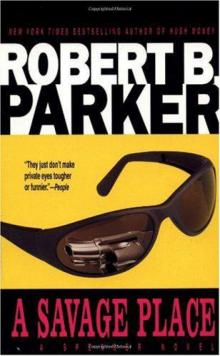 A Savage Place s-8
A Savage Place s-8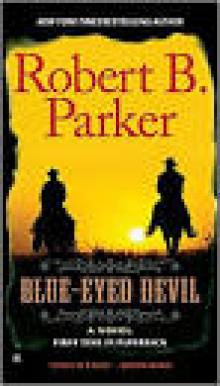 Appaloosa / Resolution / Brimstone / Blue-Eyed Devil
Appaloosa / Resolution / Brimstone / Blue-Eyed Devil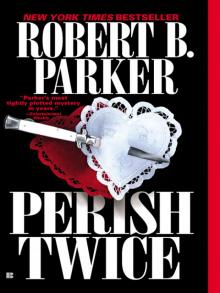 Perish Twice
Perish Twice Spare Change
Spare Change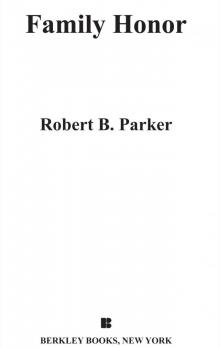 Family Honor
Family Honor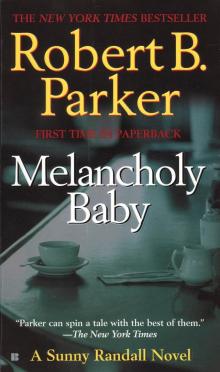 Melancholy Baby
Melancholy Baby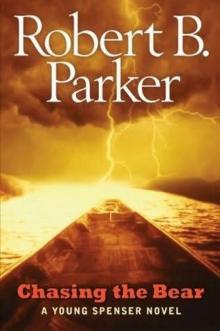 Chasing the Bear
Chasing the Bear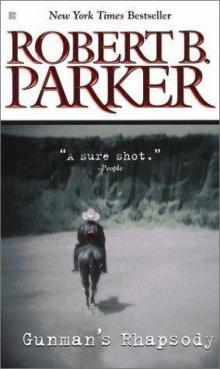 Gunman's Rhapsody
Gunman's Rhapsody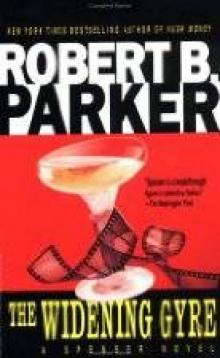 The Widening Gyre
The Widening Gyre Thin Air
Thin Air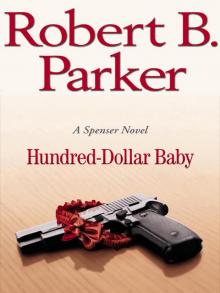 Hundred-Dollar Baby
Hundred-Dollar Baby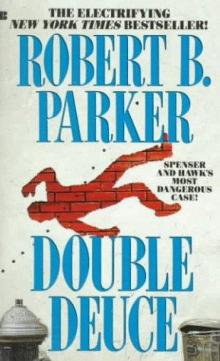 Double Deuce s-19
Double Deuce s-19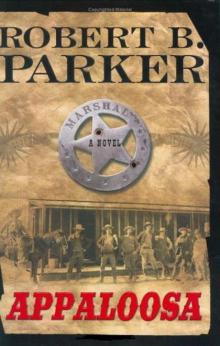 Appaloosa vcaeh-1
Appaloosa vcaeh-1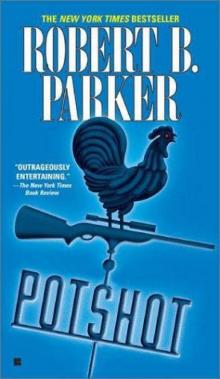 Potshot
Potshot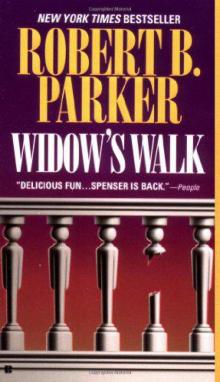 Widow’s Walk s-29
Widow’s Walk s-29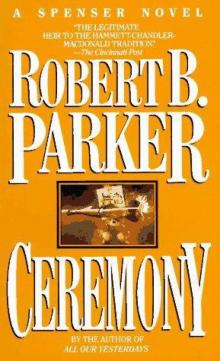 Ceremony s-9
Ceremony s-9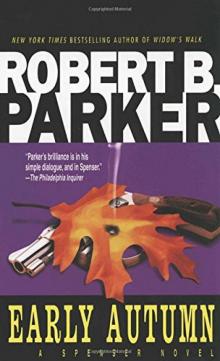 Early Autumn
Early Autumn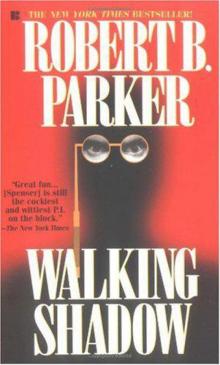 Walking Shadow s-21
Walking Shadow s-21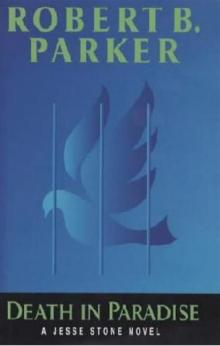 Death In Paradise js-3
Death In Paradise js-3 Shrink Rap
Shrink Rap Blue-Eyed Devil
Blue-Eyed Devil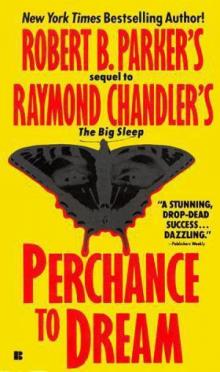 Perchance to Dream
Perchance to Dream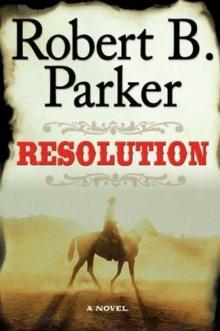 Resolution vcaeh-2
Resolution vcaeh-2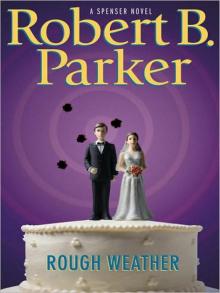 Rough Weather
Rough Weather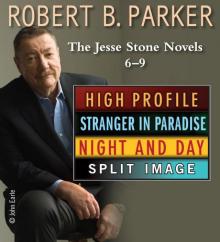 The Jesse Stone Novels 6-9
The Jesse Stone Novels 6-9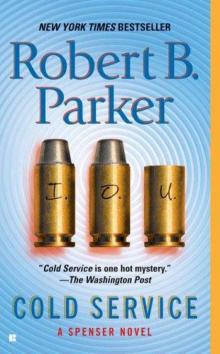 Cold Service s-32
Cold Service s-32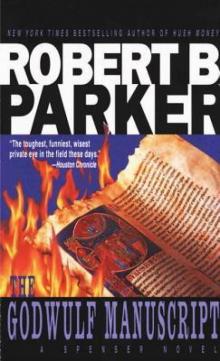 The Godwulf Manuscript
The Godwulf Manuscript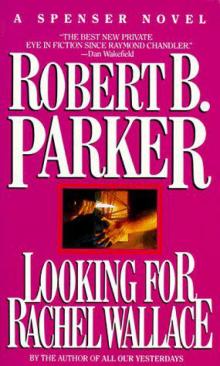 Looking for Rachel Wallace s-6
Looking for Rachel Wallace s-6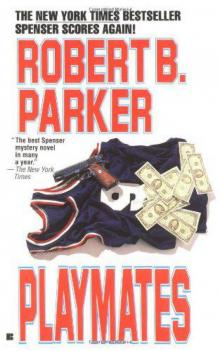 Playmates s-16
Playmates s-16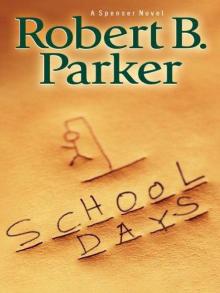 School Days s-33
School Days s-33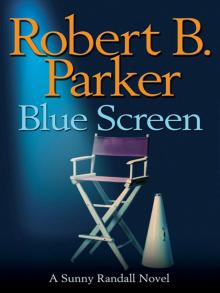 Blue Screen
Blue Screen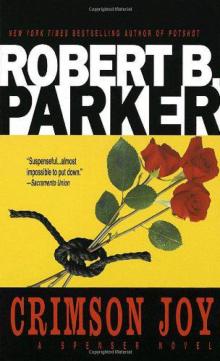 Crimson Joy
Crimson Joy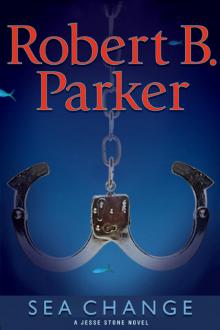 Sea Change js-5
Sea Change js-5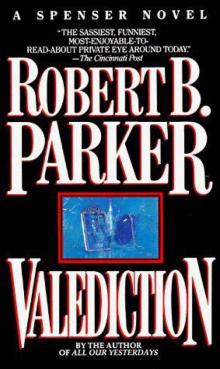 Valediction s-11
Valediction s-11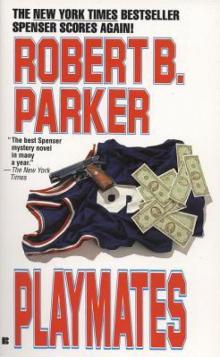 Playmates
Playmates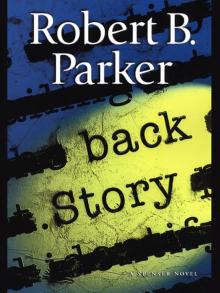 Back Story
Back Story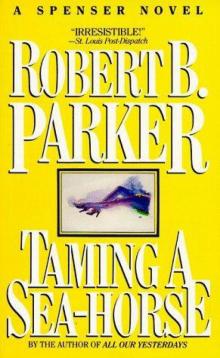 Taming a Sea Horse
Taming a Sea Horse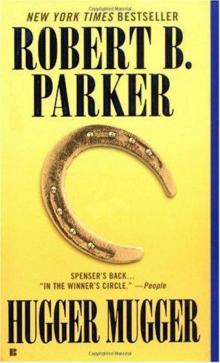 Hugger Mugger
Hugger Mugger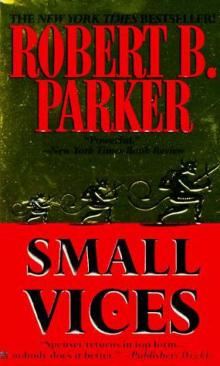 Small Vices s-24
Small Vices s-24 Silent Night: A Spenser Holiday Novel
Silent Night: A Spenser Holiday Novel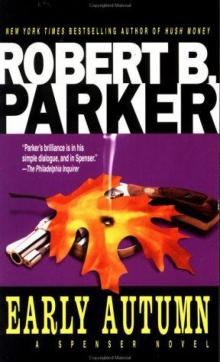 Early Autumn s-7
Early Autumn s-7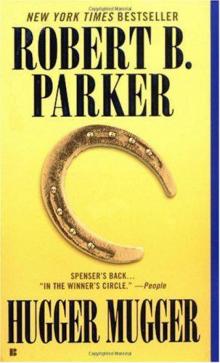 Hugger Mugger s-27
Hugger Mugger s-27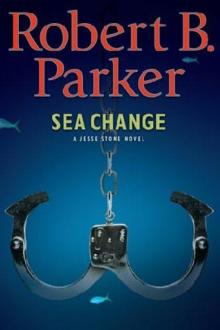 (5/10) Sea Change
(5/10) Sea Change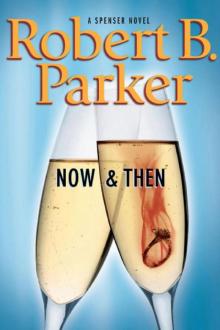 Now and Then
Now and Then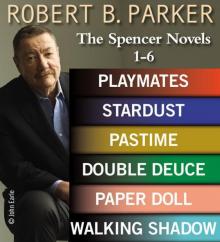 Robert B. Parker: The Spencer Novels 1?6
Robert B. Parker: The Spencer Novels 1?6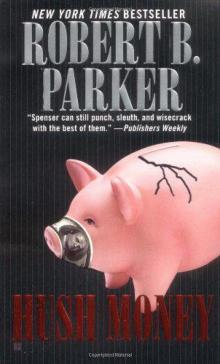 Hush Money s-26
Hush Money s-26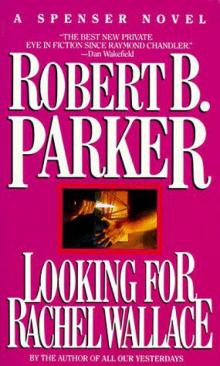 Looking for Rachel Wallace
Looking for Rachel Wallace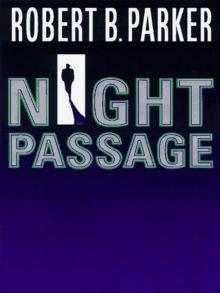 Night Passage
Night Passage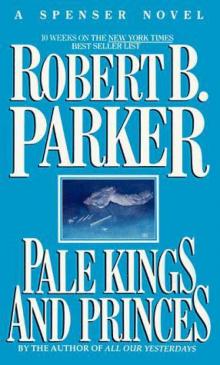 Pale Kings and Princes
Pale Kings and Princes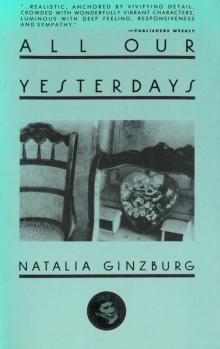 All Our Yesterdays
All Our Yesterdays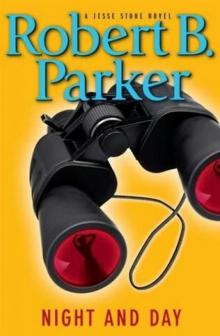 Night and Day js-8
Night and Day js-8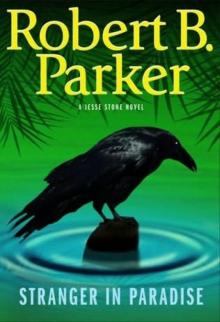 Stranger in Paradise js-7
Stranger in Paradise js-7 Double Play
Double Play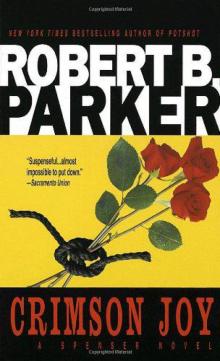 Crimson Joy s-15
Crimson Joy s-15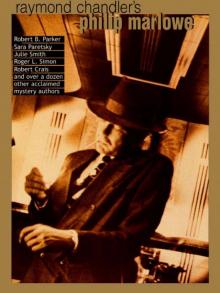 Raymond Chandler's Philip Marlowe
Raymond Chandler's Philip Marlowe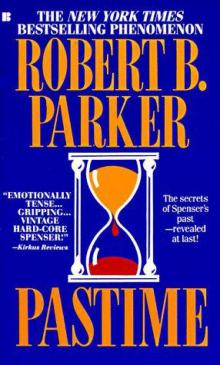 Pastime
Pastime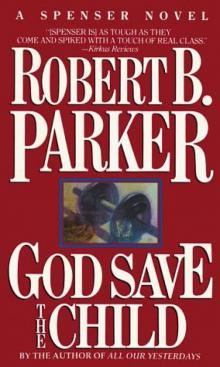 God Save the Child s-2
God Save the Child s-2 Bad Business
Bad Business Trouble in Paradise js-2
Trouble in Paradise js-2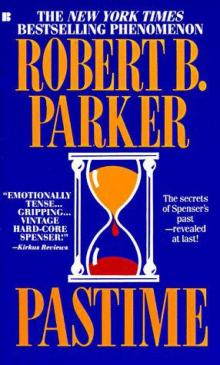 Pastime s-18
Pastime s-18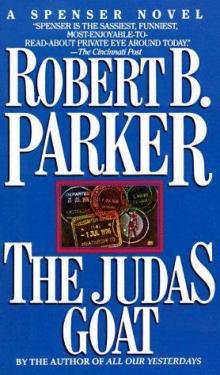 The Judas Goat s-5
The Judas Goat s-5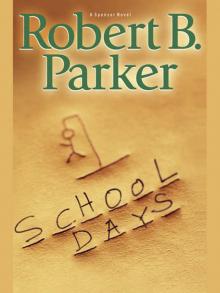 School Days
School Days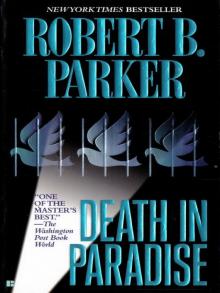 Death In Paradise
Death In Paradise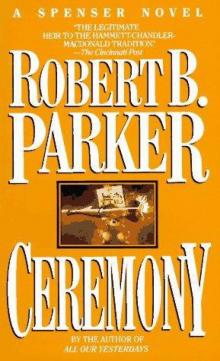 Ceremony
Ceremony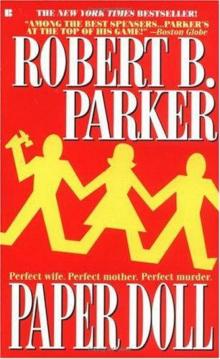 Paper Doll s-20
Paper Doll s-20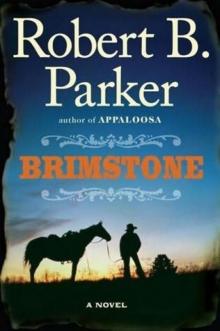 Brimstone vcaeh-3
Brimstone vcaeh-3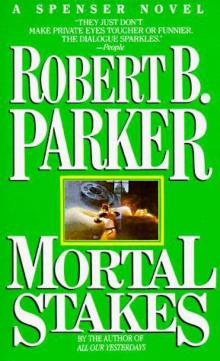 Mortal Stakes s-3
Mortal Stakes s-3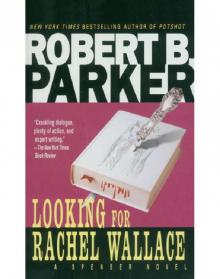 Spencer 06 - Looking for Rachel Wallace
Spencer 06 - Looking for Rachel Wallace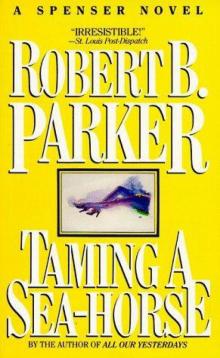 Taming a Sea Horse s-13
Taming a Sea Horse s-13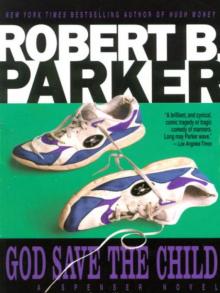 God Save the Child
God Save the Child Chance
Chance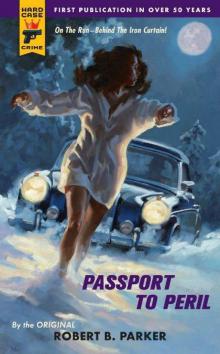 Passport To Peril hcc-57
Passport To Peril hcc-57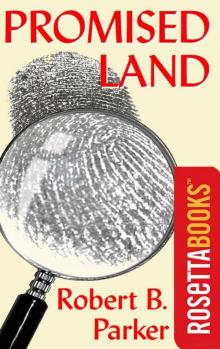 Promised Land
Promised Land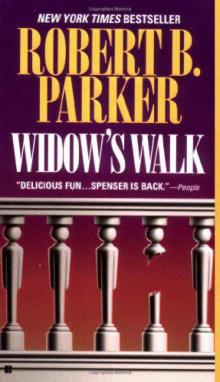 Widow’s Walk
Widow’s Walk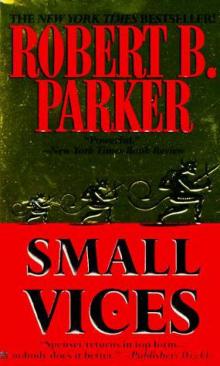 Small Vices
Small Vices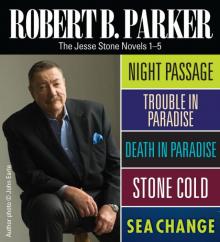 Robert B Parker: The Jesse Stone Novels 1-5
Robert B Parker: The Jesse Stone Novels 1-5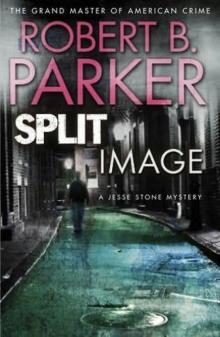 Split Image js-9
Split Image js-9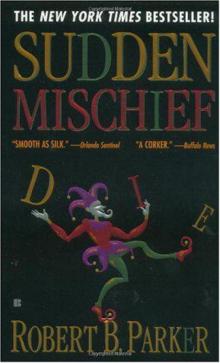 Sudden Mischief s-25
Sudden Mischief s-25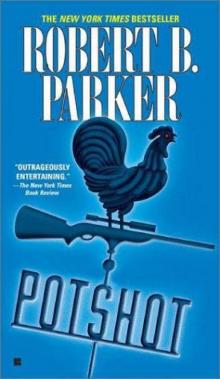 Potshot s-28
Potshot s-28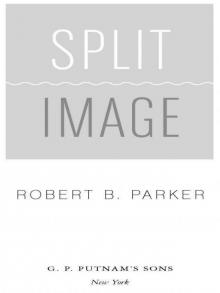 Split Image
Split Image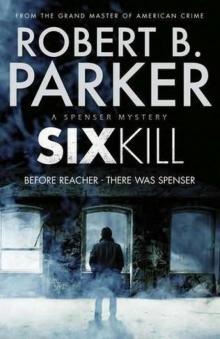 Sixkill s-40
Sixkill s-40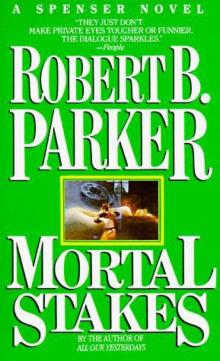 Mortal Stakes
Mortal Stakes Stardust
Stardust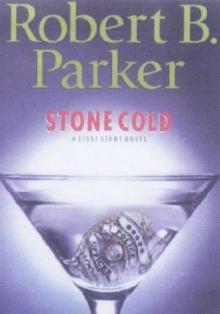 Stone Cold js-4
Stone Cold js-4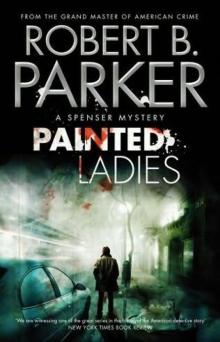 Painted Ladies s-39
Painted Ladies s-39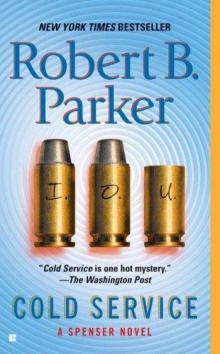 Cold Service
Cold Service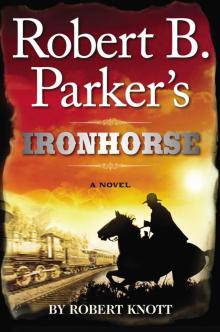 Ironhorse
Ironhorse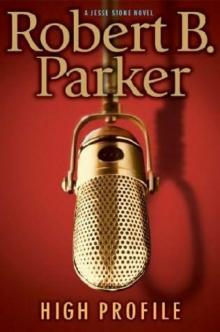 High Profile js-6
High Profile js-6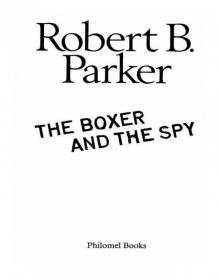 The Boxer and the Spy
The Boxer and the Spy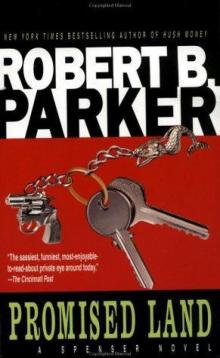 Promised Land s-4
Promised Land s-4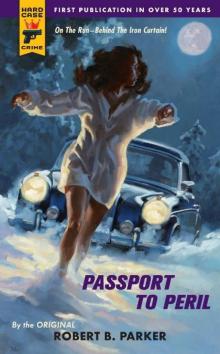 Passport to Peril (Hard Case Crime (Mass Market Paperback))
Passport to Peril (Hard Case Crime (Mass Market Paperback))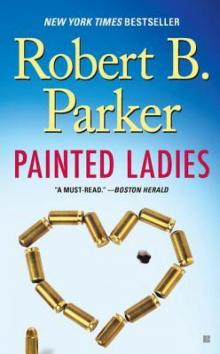 Painted Ladies
Painted Ladies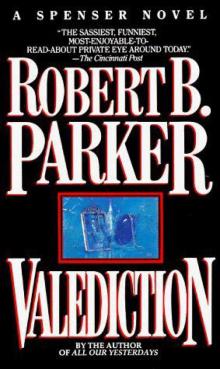 Valediction
Valediction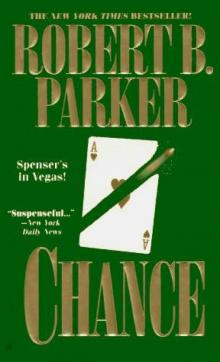 Chance s-23
Chance s-23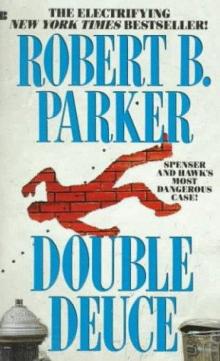 Double Deuce
Double Deuce Wilderness
Wilderness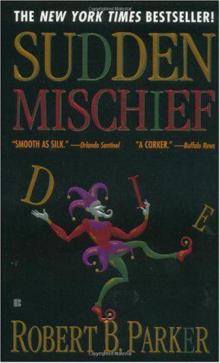 Sudden Mischief
Sudden Mischief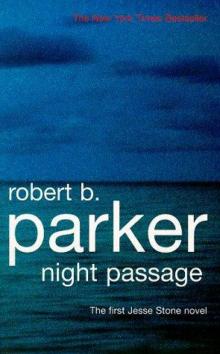 Night Passage js-1
Night Passage js-1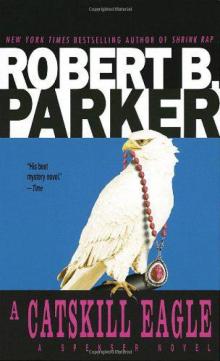 A Catskill Eagle
A Catskill Eagle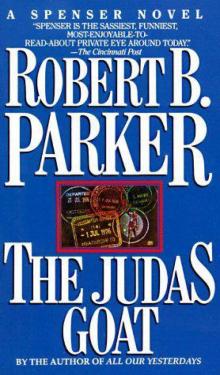 The Judas Goat
The Judas Goat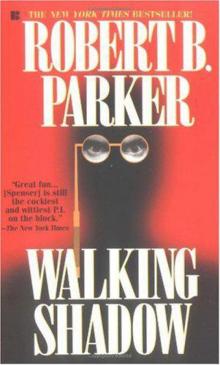 Walking Shadow
Walking Shadow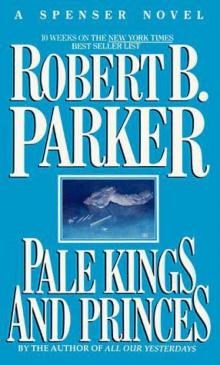 Pale Kings and Princes s-14
Pale Kings and Princes s-14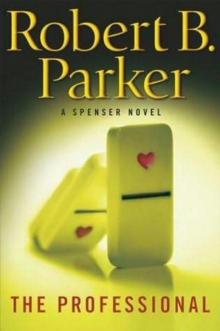 The Professional
The Professional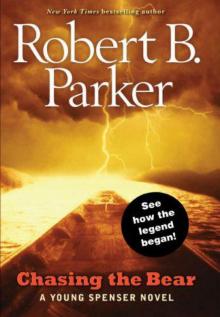 Chasing the Bear s-37
Chasing the Bear s-37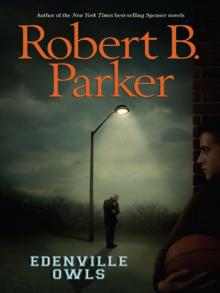 Edenville Owls
Edenville Owls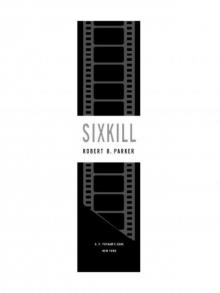 Sixkill
Sixkill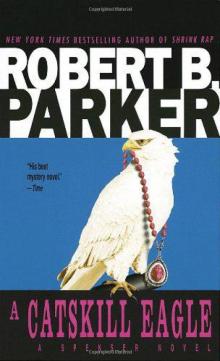 A Catskill Eagle s-12
A Catskill Eagle s-12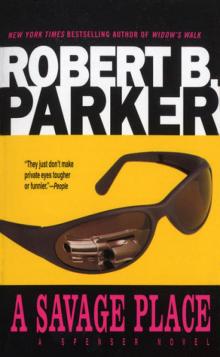 A Savage Place
A Savage Place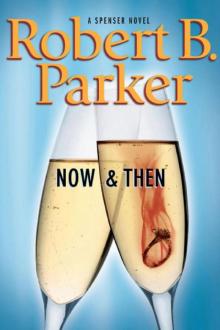 Now and Then s-35
Now and Then s-35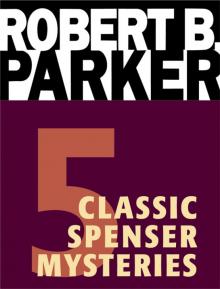 Five Classic Spenser Mysteries
Five Classic Spenser Mysteries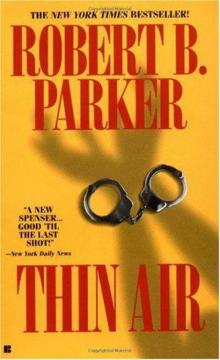 Thin Air s-22
Thin Air s-22